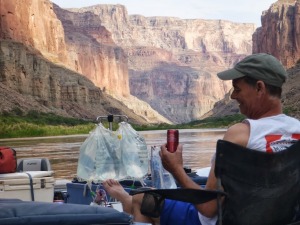
Traveling on Dialysis
With a bit of planning, you can travel almost anywhere and keep to your treatment schedule.
Visitor hemodialysis at Northwest Kidney Centers
Planning a visit to the Seattle area? If you’re traveling to the greater Puget Sound region, we’ll happily host your treatments in one of our 20 dialysis centers. Please get in touch at least 30 days before you arrive so that we can arrange times and dates that work for you.
In-center dialysis patient Emmett Smith.
Common questions
Although dialysis centers normally need at least one month to prepare for a visiting dialysis patient, we can try to help you arrange last-minute treatments in a facility at your destination if you need to travel suddenly. Talk to your nurse manager or social worker as soon as you know you’ll need to travel.
If Medicare is your primary insurance provider, around 80 percent of your dialysis costs while traveling within the U.S. will be covered. It’s up to you or a secondary provider to pay the rest.
If you have State (Medicaid), private or group insurance, it’s important to contact your insurance to check on coverage for dialysis outside of your normal service area. Some insurance companies limit coverage out of state, out of the country or on a cruise ship. Ask your insurance provider what percentage the company will pay. Also find out whether you need to go to a contracted provider or get preauthorization or a referral in order to have dialysis covered.
If you don’t follow the procedure set out by your insurance company, you could be left with a large bill to pay.
Pack your medications and relevant medical records, including your doctor’s contact information, in your carry-on luggage. If you’re a home dialysis user, consider shipping your dialysis supplies to your destination in advance.
Also, be sure to pack your own kidney-friendly snacks because airport restaurants do not always offer the healthiest choices.
When you book your flights, ask for a meal that fits your doctor’s recommendations for healthy eating. Choose a hotel with a restaurant that offers healthy choices. Carry enough food with you to cover your needs until you arrive at your destination.
If you’re a peritoneal dialysis or home hemodialysis patient, you may want to ship your dialysis supplies to your hotel in advance. Call the hotel to let them know important medical supplies will be arriving in your name.
Yes. Before you go, share your travel itinerary with your transplant coordinator. Depending on how far you plan to travel, you may need to be placed “on hold” until you return. However, if your coordinator determines that you could return with enough time to receive a transplant, your status on the waiting list won’t change.
“We had great runs through the rapids and daily fantastic side trips. We had July weather: wind, rain and hail, alone and in combination. I had a dozen moments of a lifetime. Seeing the canyon was a gift. I am so thankful for it.”
